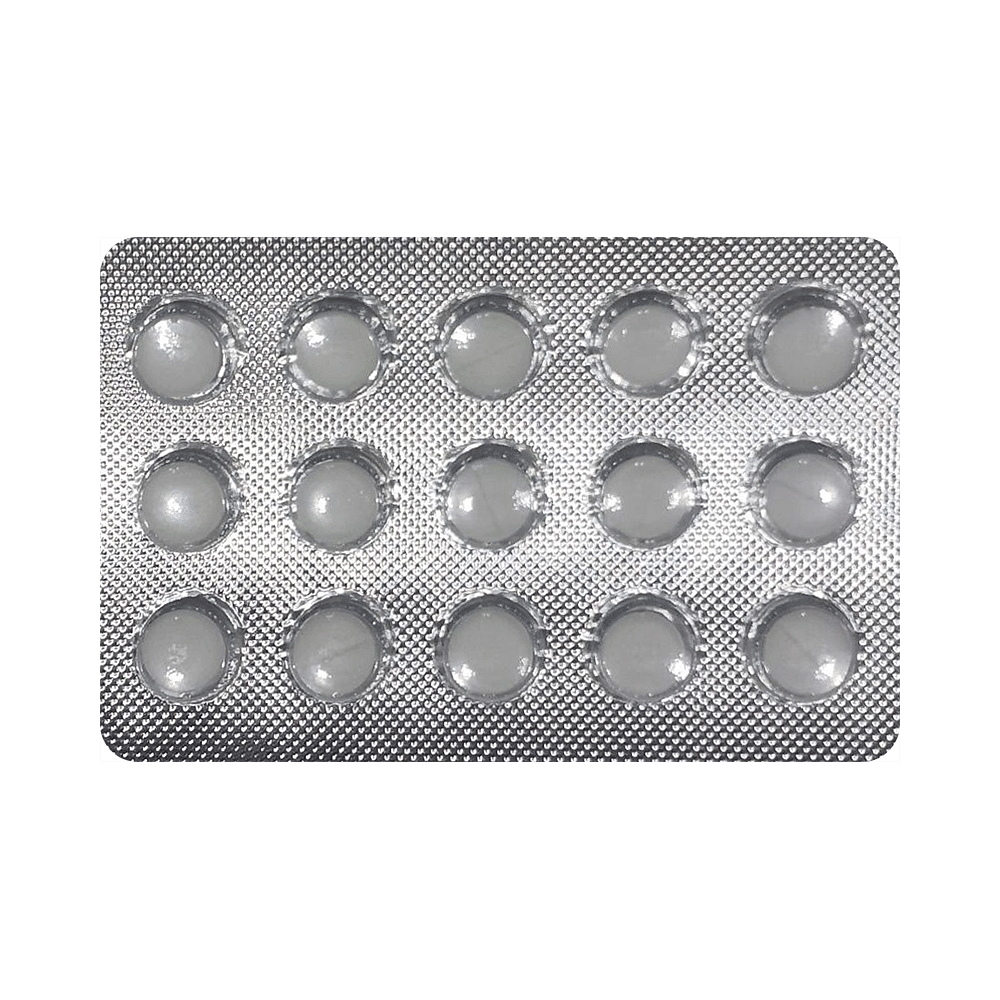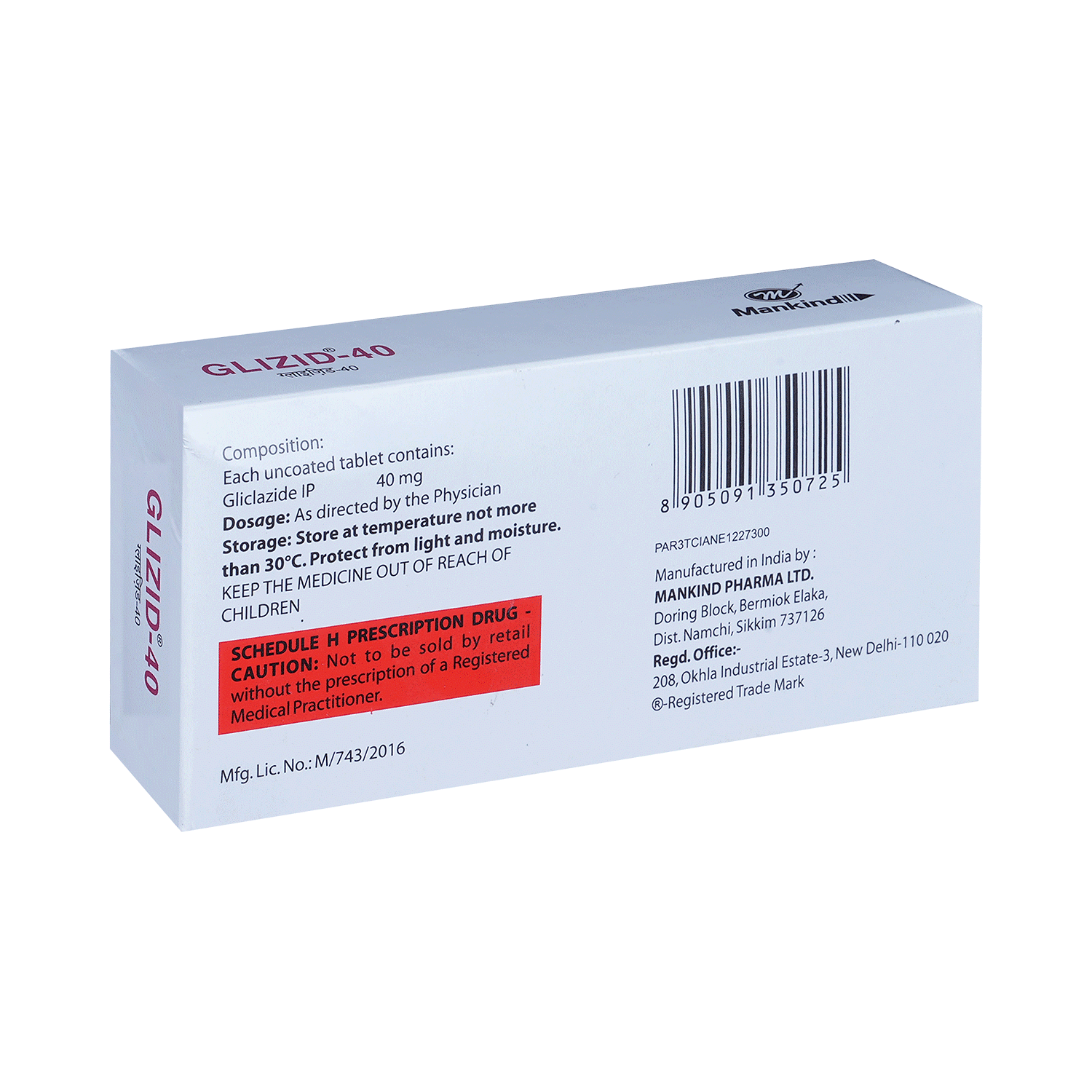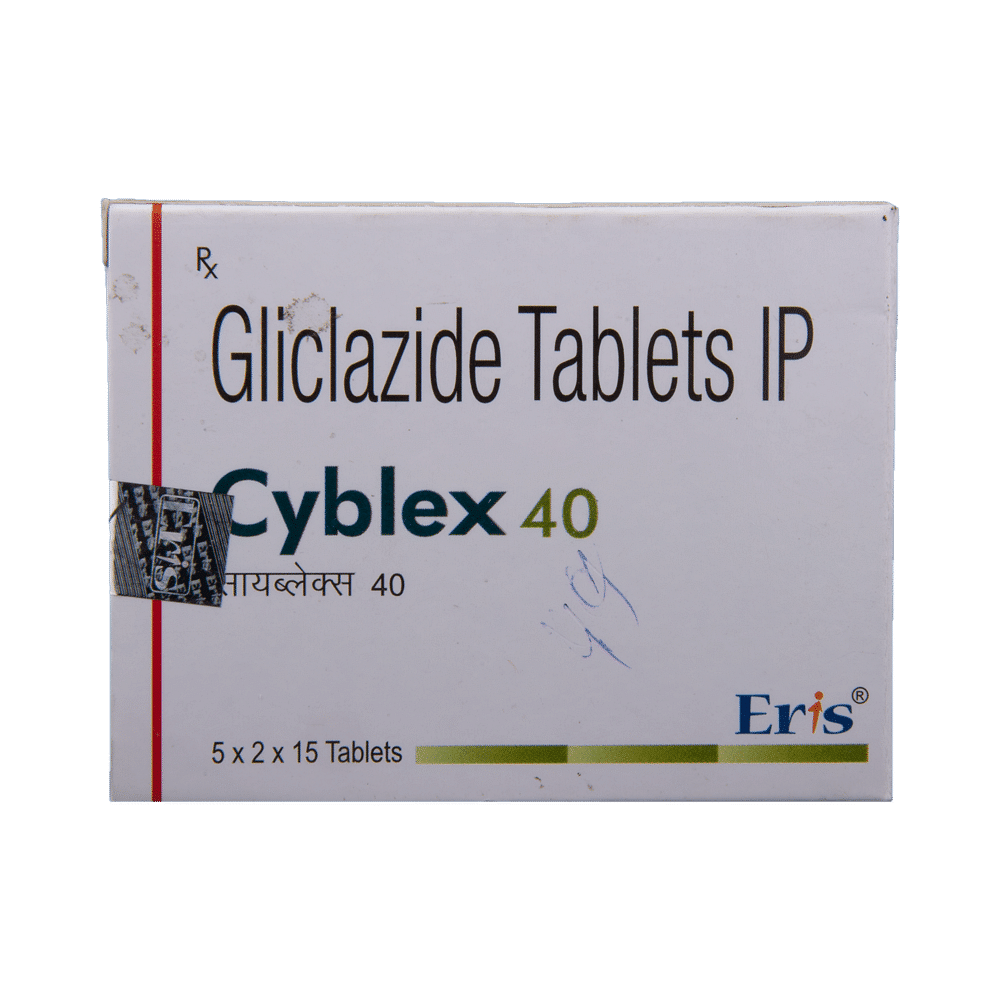
Glico 40mg Tablet
Manufacturer
Consern Pharma Limited
Salt Composition
Gliclazide (40mg)
Key Information
Short Description
Glico 40mg Tablet is a medicine used to treat type 2 diabetes mellitus in adults. It belongs to a group of medicines called sulfonylureas and helps control blood sugar levels in people with diabetes.
Dosage Form
Tablet
Introduction
Glico 40mg Tablet may be prescribed alone or along with other medicines. It should be taken with food. Take it regularly at the same time each day to get the most benefit. Your doctor will decide what dose is best for you and this may change from time to time according to how it works. Keep taking this medicine even if you feel well or your blood sugar levels are controlled. If you stop it without consulting your doctor, your blood sugar levels could rise and put you at risk of kidney damage, blindness, nerve problems, and loss of limbs. Remember that it is only part of a treatment program that should also include a healthy diet, regular exercise, and weight reduction as advised by your doctor. Your lifestyle plays a big part in controlling diabetes.
Directions for Use
Take this medicine in the dose and duration as advised by your doctor. Swallow it as a whole. Do not chew, crush or break it. Glico 40mg Tablet is to be taken with food.
Safety Information
Side Effects
Indigestion and stomach upsets Low blood glucose levels (hypoglycemia)
Alcohol Warning
It is unsafe to consume alcohol with Glico 40mg Tablet.
Breastfeeding Warning
Glico 40mg Tablet is unsafe to use during breastfeeding. Data suggests that the drug may cause toxicity to the baby.
Pregnancy Warning
Glico 40mg Tablet may be unsafe to use during pregnancy. Although there are limited studies in humans, animal studies have shown harmful effects on the developing baby. Your doctor will weigh the benefits and any potential risks before prescribing it to you. Please consult your doctor.
Interacting Medicines
Trimethoprim Amiloride Atenolol Beclometasone
How it works
Glico 40mg Tablet is an antidiabetic medication. It works by increasing the amount of insulin released by the pancreas in order to lower the blood sugar levels.
Quick Tips
Take it shortly before or with the first main meal of the day (usually breakfast). Avoid skipping meals. Be careful while driving or operating machinery until you know how Glico 40mg Tablet affects you. It can cause hypoglycemia (low blood sugar level) when used with other antidiabetic medicines, alcohol or if you delay or miss a meal. Always carry some sugary food or fruit juice with you in case you experience hypoglycemic symptoms such as cold sweats, cool pale skin, tremor and anxiety. Your doctor may check your liver function regularly. Inform your doctor if you develop symptoms such as abdominal pain, loss of appetite, or yellowing of the eyes or skin (jaundice).
Related Medicines

Glycinorm 40 Tablet

Glychek 40 Tablet

Glizid-40 Tablet

Cyblex 40 Tablet

Intragly 40mg Tablet

Dialaz 40mg Tablet

Gilran 40mg Tablet

D-Clic 40mg Tablet

Dabby 40mg Tablet

Gliclapack 40mg Tablet
Frequently asked questions
What is the best time to take Glico 40mg Tablet?
Take Glico 40mg Tablet before meals or exactly as instructed by your doctor. It's generally recommended taking it with breakfast, about 30 minutes before mealtime.
Is Glico 40mg Tablet the same as metformin?
No, Glico 40mg Tablet and metformin are different medications used for type 2 diabetes. They act differently to manage blood sugar levels. Glico 40mg Tablet increases insulin secretion by the pancreas, while metformin improves how insulin works within the body.
Can you take metformin and Glico 40mg Tablet at the same time?
Yes, your doctor may prescribe taking both medications together but only if it is deemed safe. Combining them should be done under medical supervision to avoid low blood sugar which can also occur due to missed meals or increased exercise.
Is Glico 40mg Tablet bad for kidneys?
Glico 40mg Tablet is generally safe for those with normal kidney function. If you have a history of kidney problems, it's crucial to inform your doctor. This allows them to assess whether the medication can be used and potentially adjust dosage based on individual kidney function.


